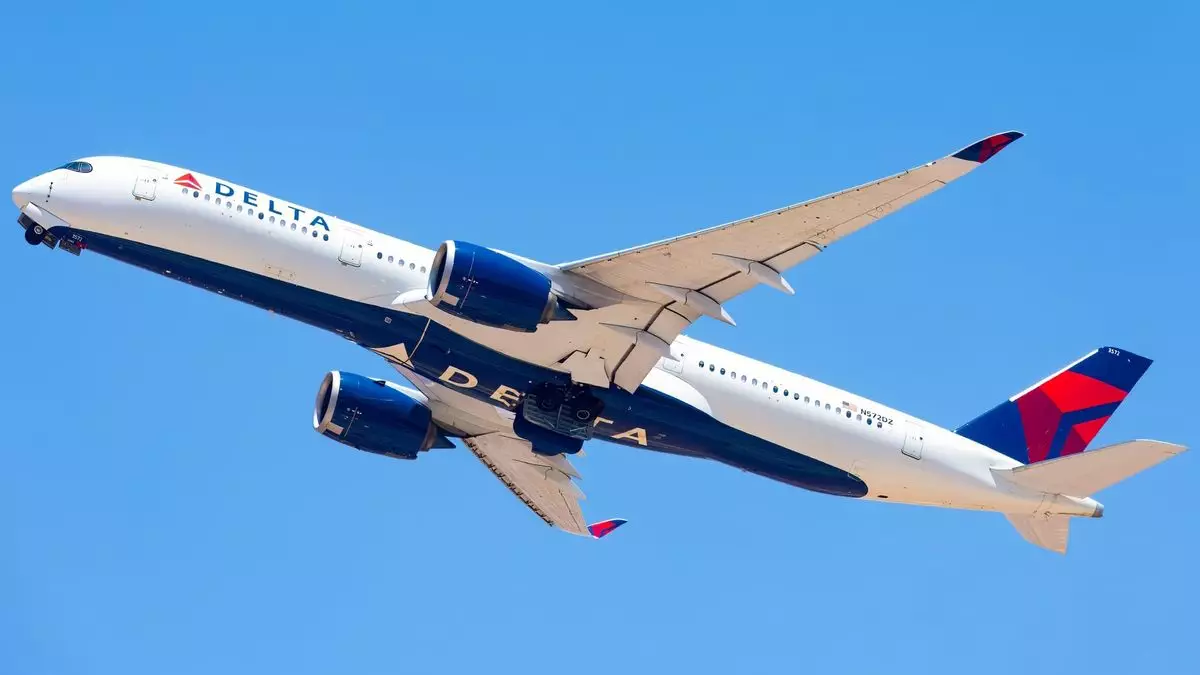Delta Air Lines, a major player in the aviation industry, has found itself in turbulent times, prompting the company to retract its 2025 financial guidance. The decision follows a concerning trend in global trade relations that has created uncertainty, directly impacting consumer behavior and corporate spending. According to Delta’s CEO, Ed Bastian, the economic landscape is marked by a slowdown, compelling the airline to recalibrate its approach to manage both operational costs and growth strategies.
The implications of a precarious trade war extend beyond simple fluctuations in airfare; they forge a climate where travelers reconsider their plans. As lower consumer confidence becomes apparent, bookings inevitably decline, forcing airlines like Delta to act prudently. With anticipated capacity growth being adjusted to mirror previous year’s figures and stringent cost controls in focus, Delta is taking proactive steps to safeguard its financial health amid unpredictability.
Financial Performance Under Pressure
Despite the overarching gloom, Delta’s recent financial report for the first quarter displayed an increase in net earnings, reflecting $240 million, or 37 cents per share, up significantly from $37 million, or 6 cents per share, the previous year. Stripping out atypical costs, their adjusted earnings rose to 46 cents, surpassing analysts‘ expectations of 40 cents per share. However, such positive figures did little to buoy Delta’s stock prices, which plummeted by 41% this calendar year, a stark indication of broader investor apprehension regarding travel stocks.
Interestingly, while quarterly operating revenue also rose from $13.75 billion to $14.04 billion, analysts expected even better outcomes. The fuel price decrease to $2.47 per gallon from $2.79 provided a glimmer of hope, yet the sentiment remains cautious. Investors are wary, seeing the airline sector as vulnerable amid rising tariffs that could dampen future demand. Delta’s retraction of its earnings outlook illustrates just how serious the impact of external economic pressures can be.
Shifting Expectations for Future Growth
A critical takeaway from Delta’s announcement is their acknowledgment of changing market conditions. The airline projected that the second quarter could yield earnings between $1.70 and $2.30 per share, with revenue expectations wobbling between a 2% decline to a 2% increase. Previously, there was confidence that consumer demand would remain robust; however, new realities show that projections for 2025 earnings—previously envisioned at over $7.35 per share—are now endearingly optimistic.
Bastian’s previous assurances at the JPMorgan Industrial Conference suggested a robust outlook, with continued margin growth a key part of their strategy. But as Bastian himself remarked more recently, „2025 is playing out differently than we expected,“ signaling an acute awareness of shifting sands beneath the airline’s feet.
Resilience in Adversity
In navigating this complex economic backdrop, Delta’s executives—led by Bastian and President Glen Hauenstein—have taken a deliberate stance focused on what is controllable. Maintaining profitability in uncertain times requires vigilance; thus, the adjustments to capacity growth and vigilant cost controls reflect a strategic pivot. This adaptation is a hallmark of strong leadership in business resilience, essential in an industry notorious for its volatility.
While the pressures faced are significant, Delta’s effort to protect margins showcases a layered understanding of financial stewardship. The airline may be in a precarious position, but their proactive approach could serve as a model for other corporations faced with similar dilemmas.
The journey for Delta Air Lines is emblematic of larger trends in the travel sector affected by trade disputes and global economic uncertainties. While the road ahead remains fraught with challenges, the airline’s commitment to adapting and managing its resources carefully signals an optimistic avenue through adversity.


Napsat komentář